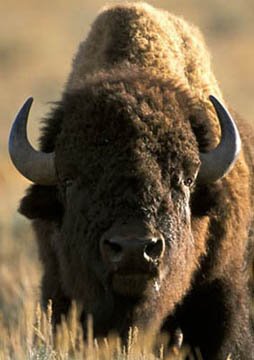
Tuesday, January 26, 2010
Wednesday, December 16, 2009
Monday, December 07, 2009
Native Americans? Indigenous People? Or is American Indian Just Fine?
I prefer the term American Indian; here are a few other opinions:
Author Steve Hendricks, whose book The Unquiet Grave: The FBI and the Struggle for the Soul of Indian Country I recently read, wrote in the book's afterword, "I use the term American Indian rather than the alternatives - Native American, indigine, aborigine, and so on - because it is the word most Indian of the Plains use to describe themselves, because it is simple, euphonious, and familiar to non-Indians, and because although its origins are disputed (possibly it was a mistaken reference to the people of India, possibly it was a reference to people 'of God,' or in dios), it is in any case not derogative in origin. The National Congress of American Indians, the American Indian College Fund, the American Indian Movement, Indian Country Today, News from Indian Country, and many other organizations run by and for Indians see no reason to stop using the word. Nor do I."
Russell Means, an Oglala Lakota Sioux and one of the founders of the American Indian Movement, certainly the most militant of Indian groups, states, "I abhor the term Native American. It is a generic government term used to describe all the indigenous prisoners of the United States. These are the American Samoans, the Micronesians, the Aleuts, the original Hawaiians, and the erroneously termed Eskimos, who are actually Upiks and Inupiats. And, of course, the American Indian. I prefer the term American Indian because I know its origins . . . As an added distinction the American Indian is the only ethnic group in the United States with the American before our ethnicity . . . We were enslaved as American Indians, we were colonized as American Indians, and we will gain our freedom as American Indians, and then we will call ourselves any damn thing we choose."
And Christina Berry, a Cherokee writer and producer of the website All Things Cherokee, says:
"In the end, the term you choose to use (as an Indian or non-Indian) is your own personal choice. Very few Indians that I know care either way. The recommended method is to refer to a person by their tribe, if that information is known. The reason is that the Native peoples of North America are incredibly diverse. It would be like referring both a Romanian and an Irishman as European. . . . Whenever possible an Indian would prefer to be called a Cherokee or a Lakota or whichever tribe they belong to. This shows respect because not only are you sensitive to the fact that the terms Indian, American Indian, and Native American are an over simplification of a diverse ethnicity, but you also show that you listened when they told what tribe they belonged to. When you don't know the specific tribe simply use the term which you are most comfortable using. The worst that can happen is that someone might correct you and open the door for a thoughtful debate on the subject of political correctness and its impact on ethnic identity. What matters in the long run is not which term is used but the intention with which it is used."
Wednesday, December 02, 2009
Thursday, November 12, 2009
Wednesday, November 11, 2009
Thursday, October 29, 2009
To Camp or Not to Camp
 Signed up for the Tecumseh Trail Marathon in December in Indiana, and may camp instead of getting a hotel room. Camping. In December. I'll give it more thought. I've camped in 17-degree weather, a night I'll never forget. I was in the Army at the time, and it was a record-setting low temperature for that November night near Augusta, Georgia. We did not have down sleeping bags, of course, and were ill-equipped for the cold snap. Not ideal training conditions for my next military post, Vietnam, where I would be two months later.
Signed up for the Tecumseh Trail Marathon in December in Indiana, and may camp instead of getting a hotel room. Camping. In December. I'll give it more thought. I've camped in 17-degree weather, a night I'll never forget. I was in the Army at the time, and it was a record-setting low temperature for that November night near Augusta, Georgia. We did not have down sleeping bags, of course, and were ill-equipped for the cold snap. Not ideal training conditions for my next military post, Vietnam, where I would be two months later.
Subscribe to:
Comments (Atom)
















